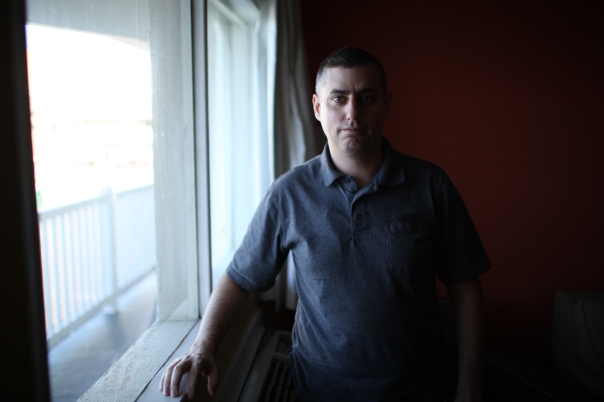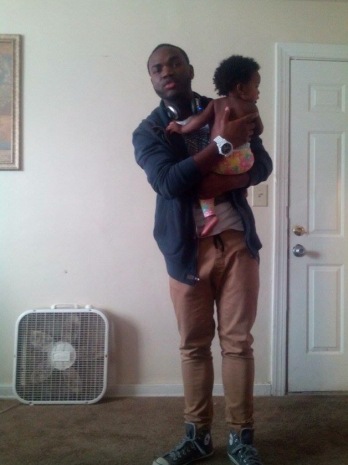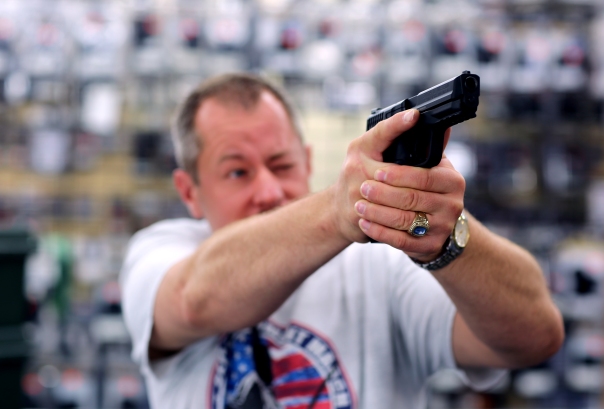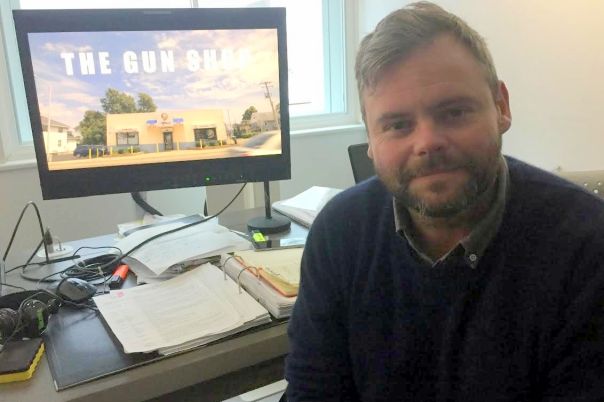by Carol Nahra
Two British documentaries airing this week provide nuanced and balanced glimpses of a frightened American psyche. In Unarmed Black Male, screening on BBC Two’s This World strand on Wednesday, James Jones takes a 360° approach to telling the story of the trial of Stephen Rankin, a policeman accused of murdering a black teenager. The following night Channel 4’s Cutting Edge strand airs The Gun Shop, where director John Douglas brings a mini fixed rig to an American gun store. (The films are part of a noticeable uptick in British television programmes examining all things American in the run up to the November 9 election, which continues to grip and horrify Europe). I spoke to both directors as they were putting the finishing touches on their films.
For Jones, his focus on the Portsmouth Virginia shooting stemmed from his interest in the growth of police shootings in America documented by citizens. He was thinking of approaching it in a similar way to films he made in both North Korea and Saudi Arabia, where he employed an abundance of both curated and collected footage by ordinary people caught up in extraordinary situations. “I wanted to make a film about how technology is changing awareness of American police shootings,” he says.“In the past the police statement has been taken as gospel truth. So there was the idea that people being able to film it on mobile phones was transforming our perception of this issue.” Whilst scouting such stories, Jones came across details of William Chapman’s murder via the Guardian’s acclaimed interactive journalism project The Counted. In a brief early morning encounter outside a Walmart store in Virginia, police officer Rankin had shot and killed Chapman at close range. Extraordinarily enough in the US, Rankin was actually going on trial in the summer for first degree murder. Like many American trials, it would be filmed. Jones had his story.

In a documentary that never drags in the course of 90 minutes, Jones secures an enormous range of interviews from those caught up in in the highly emotionally charged events — including Rankin’s only interview to date. The interview came about through dogged persistence, by befriending both Rankin’s wife Dawn, who features prominently in the film, and then Rankin himself. Jones found that both were really wanting to tell their side of the story: “They felt very beaten up by the local media and it felt like she was almost like waiting for the call,” he says.
The Rankin interview succeeds in instilling viewer empathy for a man on trial for his freedom after seemingly just doing his job (Rankin argued he fired in self defense after Chapman dislodged Rankin’s Taser). But soon the film offers up two astonishing interviews providing a very different perspective. First Rankin’s ex-wife describes his obsession with guns, including continuously discussing scenarios where he would discharge against an unarmed suspect. Then Rankin’s former boss, Ken King, a highly distinguished officer, is interviewed saying: “(Rankin) was one of these guys who could cause a riot at a church social. He could go to any event and it would just escalate out of control.” It’s jaw dropping, powerful testimony which is impossible to dismiss.
Jones said that neither Dawn nor Rankin were aware of these damning testimonials when he interviewed them, but he has since talked Dawn through it. “She’s going to hate some of it, she really will,” he admits. “But I think the thing is, on their own terms they come across as sympathetic. The film is much more fair and balanced for having them in it. And you get a sense that there are two families’ lives destroyed by this, whatever the details of the shooting.”
The film goes on to show the ripples of misery stemming from the Walmart shooting, following the quest of Chapman’s family for justice, as well as a mother from Kazakhstan whose inebriated unarmed son also was killed by Rankin, who was never charged. To round out this story, Jones and his team managed the impressive feat of tracking down two of the anonymous jurors, one black and one white, who describe in detail some of the thoughts behind their deliberations, to which they each clearly brought their own personal experience to bear. “The white juror that we interviewed certainly had had experiences in her life that she told us about that shaped her worldview and her view of someone like William Chapman,” says Jones. “So that was key to the jury’s deliberations. And that’s quite scary that that would be the case.”

Indeed, like so many films about the US, Unarmed Black Male offers up a vision of dysfunctional race relations. What did Jones himself make of racial tensions? “The divide felt very stark. As an English person who lives in London where you are surrounded by people from all over the world and there are very few ghettoised neighbourhoods, it’s all a kind of melting pot, going to the south of America was a culture shock. You’d go into neighbourhoods and you’re the only white person there. And you’re viewed with great suspicion at first because white people usually spell trouble in that neighbourhood. So I was shocked that the legacy of segregation was so visible.”
Coming as a stranger into a volatile story, Jones is delighted by just how many people agreed to take part. “We were really happy with the way the film turned out. I don’t know if it’s America, or the South, but everyone was willing to talk to us. And that just never happens. Usually you’ve got like a one in three chance of people agreeing, but for one reason or another they really did want to tell their story.”
In the end, the type of mobile phone footage that was the seed for this film instead becomes a grim drumbeat of misery. In between scenes from the Rankin storyline, Jones uses such video to catalogue the many police shootings of black victims which took place, even in the relatively short time span of the film.
Made using very different techniques, The Gun Shop nonetheless sheds light on similar terrain, notably the current climate of fear in the US which contributes to a gun death rate at least ten times higher than the rest of the developed world. Director John Douglas says that he and the development team at Rogan Productions were very keen to find a shop whichb flew in the face of British perceptions: “It felt like we should try and move away from very stereotypical views of gun shops and gun owners. So finding somewhere where the shop was based in a community but was diverse, had young and old, and wasn’t just the community you’d normally expect.”

The shop they settled on, in Battle Creek, Michigan has a shooting range and runs educational classes, in addition to a constant stream of varied customers. I wondered what the owners of the gun shop made of the fixed rig style of programming they were proposing – using mounted cameras operated remotely – which is unknown in the US? “Yeah it is unknown,” Douglas agreed. “The sort of reactions we would get would be people would think it was like a reality show or Big Brother. It took a while. We showed them some 24 Hours in A&E and some other things I’d worked on which were not rigged but not sensationalising and treated people with respect. So I think that helped.”

For the six day rig shoot they kitted out the shop with 12 cameras (three would shoot at any one time); Douglas directing from a backroom gallery. Assistant Producer Rebecca Coxon manned the shop floor, seeking consent and fitting customers with radio mics. In a week of follow up filming they delved more into some of the stories, which together paint a rich tapestry of reasons underlying why so many Americans are arming themselves.
Back in London, working with experienced fixed rig editor Sam Santana (see this Docs on Screens interview), Douglas was painstakingly working to make a film which took a nonjudgmental tone. “It would be really easy to make an anti gun film. Really easy,” says Douglas. “But the way that I’ve hoped we approached it in this documentary — and to some degree all documentaries — is always to be able to put yourself in other people’s shoes a bit. Because clearly whether anti gun or pro gun there’s not all that anger and rhetoric because they’re bad people and they only want to hate one another and they want to ruin everyone else’s life. They’re doing it because they feel really passionate about the issue.”
Unarmed Black Male airs Wednesday, November 2nd at 9pm on BBC Two. The Gun Shop airs Thursday, November 3rd at 9pm on Channel 4.
